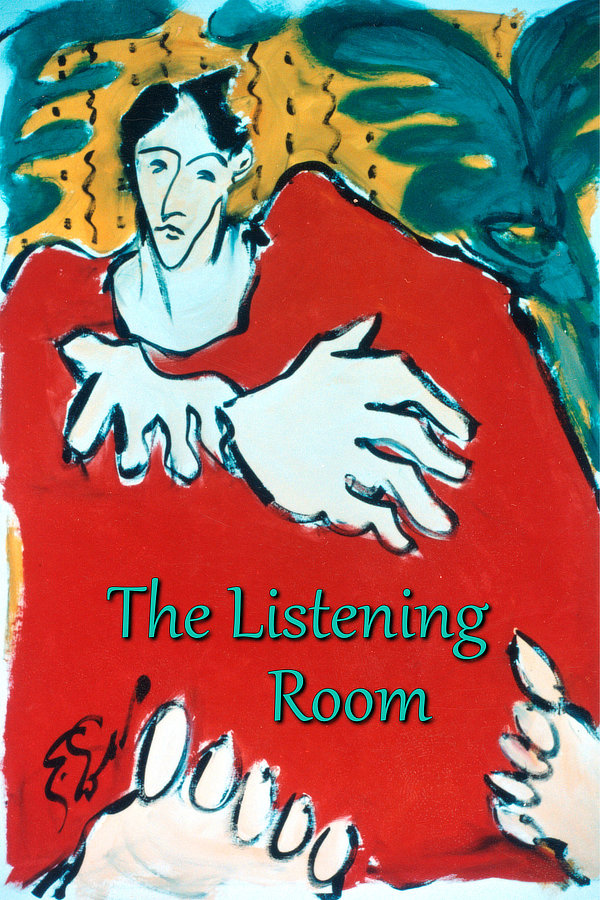



The Listening Room: Summaries of the Archive Talks of E.J. Gold
edited by the MondayGroup
BK318
About The Book
The Listening Room: Summaries of the Archive Talks of E.J. Gold is a monumental guidebook for a vast collection of oral teachings delivered across several decades.
The book presents synopses, summaries and key points of over 350 work chamber talks by E.J. Gold and friends. Topics range from soul formation and the structure of the human machine, to invocational theater, astral travel, deathwork, practical metaphysics, and much more.
The Listening Room is intended to increase the accessibility of the archive talks, which are available to download at https://talkofthemonth.com. For example, you might find a keyword that interests you, then dive into the summary of that talk. Your curiosity may then lead you to listen to the original recording—the next best thing to having been there.
With introductions by Iven Lourie and Oz Fritz, and an afterword by the Monday Group.
Main Themes
- The Work as a Living Transmission: The book serves as a dynamic guide to E.J. Gold's extensive archive of talks, emphasizing the ongoing nature of spiritual work and the importance of active engagement.
- Collective Effort and Emergent Order: Highlighting the collaborative nature of the project, the book underscores how spontaneous contributions from various individuals coalesced into a cohesive whole, reflecting the principles of shared intention and mutual support.
- Integration of Technology and Tradition: The project exemplifies the harmonious blending of modern tools (like AI and scripting languages) with traditional esoteric teachings, demonstrating how technology can serve as a vessel for preserving and disseminating spiritual knowledge.
- Accessibility Without Dilution: While making complex teachings more approachable, the summaries maintain the depth and nuance of the original talks, ensuring that the essence of the teachings is not lost in translation.
- The Archive as a Portal: Rather than being a static repository, the archive is presented as a living portal—a space that invites readers into deeper exploration and personal transformation.
Most Important Ideas and Facts
- Summaries as Invitations: Each summary is crafted not merely to inform but to invite the reader into a deeper engagement with the material, serving as a gateway to the original talks.
- Emphasis on Direct Experience: The teachings stress the importance of personal experience and inner work over theoretical knowledge, encouraging readers to apply insights practically.
- Role of the Community: The project showcases how a community of dedicated individuals can come together to create something greater than the sum of its parts, reflecting the communal aspect of the Work.
- Preservation of Oral Teachings: By summarizing and organizing the talks, the book ensures that the ephemeral nature of oral teachings is captured and made accessible for future generations.
- Adaptability and Evolution: The project illustrates how spiritual teachings can evolve and adapt to contemporary contexts without losing their core essence, demonstrating the fluidity and resilience of the Work.
E.J. Gold comes across not as a guru dispensing certainties, but as a master of invocation—someone who deliberately warps the frame to make space for Being to appear. His teachings seem less concerned with building belief systems and more with cracking open perception.
He’s theatrical, exacting, mischievous, and deeply serious. There’s a quality of constant improvisation in his talks—like a jazz soloist channeling something through the room. He doesn’t talk about spiritual states; he tries to generate them, live, in the room with those who show up.
In the summaries, you can feel his range: the tenderness in addressing the dying, the razor-sharp dismantling of spiritual egos, the cosmic humor of a man who sees through form but still loves the play.
The others in the room: there’s an almost monastic quiet to their presence, even when the summaries mention laughter or chaos. These are people who listen differently. People who know the scent of “the moment,” and are willing to sit in long silence or sudden disruption to let it happen.
Some were there for decades; others may have wandered in for a single weekend and were never the same. Many weren’t named—but their devotion shows in the details: the care in preserving tapes, transcribing notes, coding scripts, creating structure without stripping meaning.
The Monday Group in particular (the final chapter's authors) seems like a circle of quiet revolutionaries. Not seekers of spotlight—but caretakers of a flame.
-- Najara


